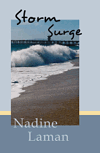As if there isn't plenty to learn about writing, then dread strikes when the thought of editing tramps across the bliss of completing the first draft of 'the manuscript.'
There are several different types of editing, named, of course, closely to their actual function.
This is what usually occurs:
Spell check. Done. Off to the best friend or significant other to show off the manuscript, your pride and joy.
The friend likes it, but...
Finally they hesitantly and apologetically mention there are some errors.
Now the serious self-editing begins. The diligent writer reads through the ms on the monitor. He anguishes over the stupid errors he didn't notice before. Then off to another 'sure to rave' friend.
The best use of the writer's time is to print the ms and read it aloud - red pen in hand.
There are some things harder to catch than peek, peak, pique [homonym] goofs and over used words. Because the writer has intimate knowledge of the story and characters, it is easy to miss odd jumps in time, unneeded secondary characters, assumptions the reader knows things that aren't in the story or overly annoying explanations of things anyone would know, a sloppy misuse of literary devices, and a dozen more things that make the ms destined to forever hit the rejection list of the publisher's slush pile.
The solution is simple. It's not your favorite English teacher from school or your super smart friend who knows nothing about writing. The solution is to hire a content editor.
Finally after all the rewrites, and there will be many of them, comes the time for the line editor or proof reader; the final clean up crew.
After spending untold hours writing the ms, don't skip the final polish before sending it and the query letter on its way into the vast world of publishing.
The harsh reality is, regardless of how awesome the story idea is, if it will take too much time to find that gem and polish it into a marketable commodity, most publishers will pass.
There are thousands of mss shopped for publication a year. Yours needs to be competitively written to get the first three chapters read. No one expects perfection from a manuscript, but it really should look like some effort was put into presenting a worthy product.
I thought this was interesting. "Rewriting work under such circumstances more often than not works out to an editing rate of 2 to 3 pages an hour." It really does go at a snail's pace when I "read" a manuscript for content editing. http://www.teleread.com/epublishing/the-changing-face-of-editing
Enough blog reading, get back to writing the next Great American Novel.
Subscribe to:
Post Comments (Atom)

 When Paul Fenton stops for breakfast in a small town, he gets more than he bargained for in the process.
When Paul Fenton stops for breakfast in a small town, he gets more than he bargained for in the process.
 When two-hundred-year-old human remains are discovered on one of Neptune's moons, Earth's history falls into question.
When two-hundred-year-old human remains are discovered on one of Neptune's moons, Earth's history falls into question.
 Emily's husband persuades her to try thalidomide to ease her symptoms as she is unaware of the devastating effects.
Emily's husband persuades her to try thalidomide to ease her symptoms as she is unaware of the devastating effects.
 Who is the women's shelter bomber? Melissa Ryan suspects that her husband knows.
Who is the women's shelter bomber? Melissa Ryan suspects that her husband knows.
 Further developments with the Wilder family.
Further developments with the Wilder family.
 A hidden past shakes the O'Donovan family to its core
A hidden past shakes the O'Donovan family to its core
 A swirl of emotion and choice, set in Cape Town, South Africa
A swirl of emotion and choice, set in Cape Town, South Africa
 Love is a constant, but it comes at a price.
Love is a constant, but it comes at a price.
 When the road ahead is unclear, sometimes you have to rely on trust.
When the road ahead is unclear, sometimes you have to rely on trust.
 The struggle between good and evil is ages old. It gets all the more complicated when the good guys aren't all good and the bad guys have redeeming qualities.
The struggle between good and evil is ages old. It gets all the more complicated when the good guys aren't all good and the bad guys have redeeming qualities.
 Story of a land mothering two races of people – the light-skinned and the dark-skinned.
Story of a land mothering two races of people – the light-skinned and the dark-skinned.
 A gifted Ukrainian ballerina comes into possession of a mysteriously coded address book.
A gifted Ukrainian ballerina comes into possession of a mysteriously coded address book.
 Six passengers' lives change for better or worse after they arrive in Honiton.
Six passengers' lives change for better or worse after they arrive in Honiton.
 Resilience and love in a harsh and unforgiving age
Resilience and love in a harsh and unforgiving age
 Kathryn's Beach
Kathryn's Beach High Tide
High Tide Storm Surge
Storm Surge
Tell me about it! After selling five books on my own, I've only recently started having my stuff profesionally edited before submitting to publishers or my agent. Definitely worth the money in this competitive publishing climate!
ReplyDeleteHello Cecelia,
ReplyDeleteI can't emphasize enough the importance of polishing the ms before shopping it. I guarantee it makes a huge difference in whether a rejection letter follows the query.